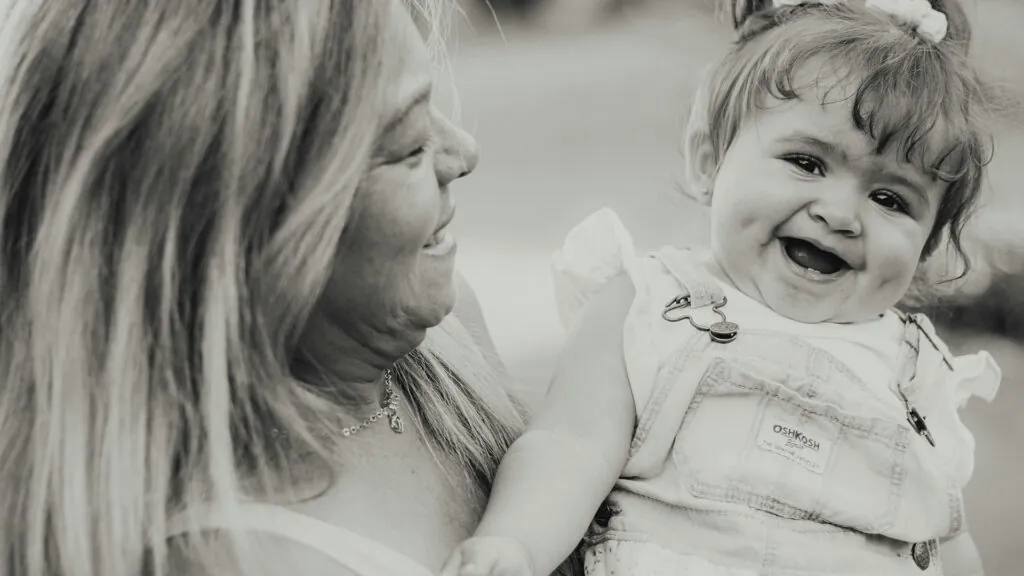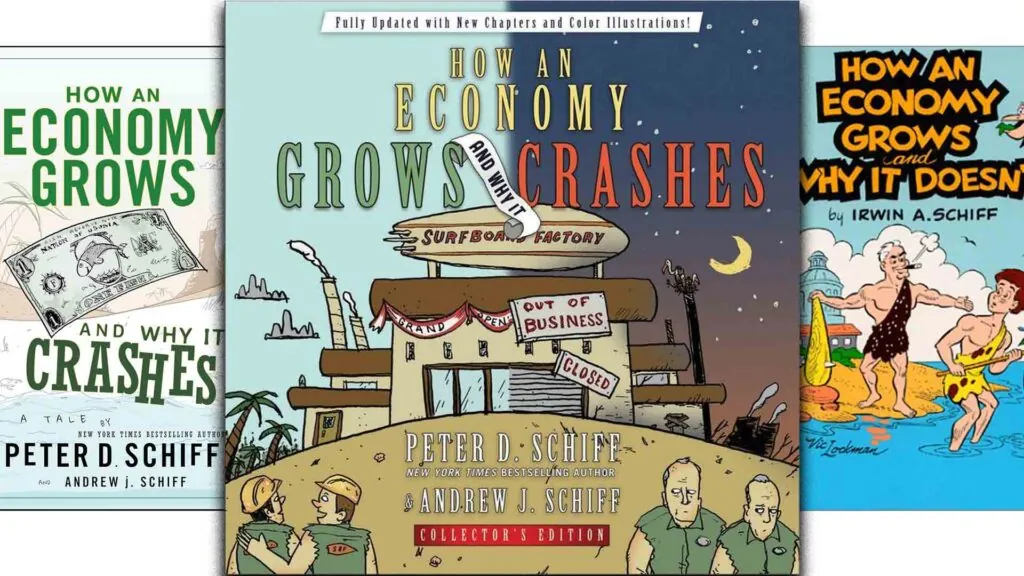Blessed are the busy?
Should we be trying to be less busy or be busy better?
*****
It’s not really the worst problem to have: too many good things to do, and not enough time to do them all. Maybe that's why, when I talked to so many women about busyness, they admitted to stress and struggles around their busy schedules, but also expressed gratitude for all the things that fill up their days.
The question for most of us isn’t whether or not we’re busy (and sometimes too busy). Rather, we wonder if we’re always busy with the right things, and for the right reasons. We want to figure out how to cope with the reality of busyness, and maybe find a way to bring a little more balance and sanity to our lives.
BUSYNESS: A HEART ISSUE
“I don’t want to miss out on opportunities, mess up relationships by disappointing people, or misstep right out of God’s will. I struggle with keeping some sense of balance in my life. I struggle with worrying about what others think of my decisions...”
– Lysa TerKeurst, The Best Yes
For better and worse, busyness is as much a heart issue as it is a physical one, and maybe that’s why it’s such a hard one to grapple with. It’s difficult to untangle our motivations for the choices we make with our limited time and energy.
Sometimes our busyness is driven by the wrong things, like a desire to please or earn admiration, or by misplaced priorities. Often, though, we’re acting out of a sincere desire to serve God and others, and to be good stewards of the time and opportunities God has given us. We feel keenly the weight of others’ needs and expectations. At the same time, we constantly fight the temptation to compare – and judge.
These struggles of the mind and heart lead to a lot of soul-searching. And, as was made clear by some of the thoughts that were shared with me, they are the cause of very real distress for many Christian women.
“It can be really quite hard to assess if I am truly called to a new thing or if I should stay the course on what I am doing. It’s hard to assess my motives. And even when I make a decision, I easily second-guess myself.”
“Do we make ourselves busy to avoid judgment from others who look at us and think we should be doing more? I feel that sometimes.”
“Too often we connect our personal worth and value to the stuff we are busy with.”
“... this is what drives me: If I don’t do it, I’ll disappoint someone who matters – or even who doesn’t really. If I don’t do it, I’m lazy... or I’m unstewardly: I can save money by canning and baking and freezing. I’m failing my kids: if I don’t bake, and can, and preserve, I’m feeding them cancer or other diseases. I’m not letting them grow to their fullest potential by taking their sports and music from them... Will I fail my calling and deny my promises at baptism if I don’t do all these things? ... where am I trusting God in all this?”
We really do want to be “Proverbs 31 women,” capably accomplishing all our tasks (and then some) with a godly heart and a serene smile on our face, but there just isn’t enough time for everything. We’re only human, but sometimes feel guilty about our very natural weaknesses and limitations. When can we legitimately say that we are “busy enough”? As Kevin DeYoung puts it in his excellent book Crazy Busy, we’re constantly told that:
“we should pray more, give more, show hospitality more, share our faith more, read our Bibles more, volunteer more.... Where do I start? Where do I find the time? How can I possibly meet all these obligations?... I think most Christians hear these urgent calls to do more (or feel them internally already) and learn to live with a low-level guilt that comes from not doing enough.... That’s not how the apostle Paul lived (1 Cor. 4:4), and it’s not how God wants us to live either (Rom. 12:1-2). Either we are guilty of sin – like greed, selfishness, idolatry – and we need to repent, be forgiven and change. Or something else is going on. It’s taken me several years, a lot of reflection and a load of unnecessary busyness to understand that when it comes to good causes and good deeds, ‘do more or disobey’ is not the best thing we can say.”
PRIORITIES
“I have so much to do that I shall spend the first three hours in prayer.”
- attributed to Martin Luther
When the author to the Hebrews encourages God’s people to “run with perseverance the race marked out for us,” he doesn’t just tell us to throw off “the sin that so easily entangles,” but also urges us to lay aside everything (or “every weight”) that hinders. These “weights” aren’t necessarily bad in themselves – they’re distinct from the “sin” that’s also mentioned – but they draw our attention away from the race that’s in front of us.
At its most simple, figuring out a way forward comes down to priorities. If we’re not able to do everything (and we’re not!), we need to identify and prioritize the most important things, the things that can’t be left undone.
I think, at heart, most of us know what those most important things are: our relationship with God, our relationships with those closest to us, the daily calling God has put in front of us in our different roles, our own wellbeing (physical, mental, emotional, spiritual). But sometimes taking time for devotions can feel like a leap of faith (“How can I sit down now if I hope to get everything done this morning?”) or, worse, like just another chore; and it’s easy to brush off “relationship time” or adequate sleep when other things feel more urgent.
The women I talked to also pondered the importance of well-ordered priorities in their lives, and how to stay focused on the things that really matter. Their helpful suggestions included asking ourselves some pointed questions.
“How does my time use match, or not match, what I’ve identified as my priorities?”
If God is number one in my life, does my daily and weekly schedule reflect that? Or do things that are far less important, but feel more urgent, keep crowding out Bible study or church activities?
“What are my personal non-negotiables?”
For one woman, these daily must-do’s are “devotions, going outside into God’s creation (even if it’s just for a short time), and making a good dinner. These are non-negotiables for me because they’re all very important for my physical, emotional and spiritual health as well as my family’s.” Others’ lists are different, but making conscious, deliberate choices about our priorities is key.
“Is any one part of my life drastically out of balance?”
We’re complex beings, and the different parts of our lives and selves – mental, emotional, physical, spiritual, social, work – affect each other. A Christian counselor shared with me that the biggest cause of stress, in her experience, is an imbalance between these areas. We need regular sleep, exercise, and healthy food. We need relationships that rejuvenate us (especially when other relationships in our lives are more difficult or draining). We need Sunday rest, breaks, and times of quietness.
“Am I minimizing ‘artificial busyness’?”
Some of the things that make us feel busy actually lack substance. Social media is a big one for many of us. As one woman commented, “This isn’t natural human connecting and working on relationships, this is a substitute” – so we’re better off focusing on the people in front of us, rather than on the virtual relationships and conversations that can divert so much of our time and energy.
“Am I too worried about what others think?”
Peer pressure, and others’ expectations (real or perceived), are a huge factor in keeping us busy – sometimes with the wrong things. Maybe if you’re willing to raise some eyebrows by challenging or resisting an unhealthy trend, others will gratefully follow.
“Am I bringing my decisions, and my struggles, to God?”
Many women emphasized the key role of prayer and time in God’s Word in their decisions around time use, and their struggles with feelings like guilt, discouragement and inadequacy. Making time for personal devotions actually is a leap of faith – one that not only honors God, but also grounds us, reminds us to trust God (and humbly recognize our own limits), and helps us make wiser decisions.
So how can you have a Mary heart when you have a Martha to-do list? Start by knowing your priorities, focusing on them first, and trusting God to help you sort through the rest. As Kevin DeYoung put it, “The antidote to busyness of soul is not sloth and indifference. The antidote is rest, rhythm, death to pride, acceptance of our own finitude and trust in the providence of God.”
WHAT DOES GOD REALLY WANT FROM US... AND FOR US?
“It is extraordinary how little the New Testament says about God’s interest in our success, by comparison with the enormous amount it says about God’s interest in our holiness, our maturity in Christ, and our growth into the fullness of his image.”
– J.I. Packer, Rediscovering Holiness
We all want to be faithful and fruitful... but this desire can easily veer off course. What is it that God most wants from us, and for us?
The fact that He made us with very real weaknesses and limitations tells us something. He created us to need sleep, and in fact a substantial number of hours of it. He sometimes gives us extended, enforced periods of waiting and inactivity. These realities can be very frustrating for us. Couldn’t we accomplish so much more for Him if we didn’t have these limitations?
But evidently – and amazingly – God is more interested in us, and the sanctifying work He’s doing in us, than simply in our raw productivity. We’re not merely servants with long and burdensome lists of tasks; we’re loved children. What a freeing thought, and what an undeserved honor!
When we start evaluating ourselves (or others) based on how much we can accomplish, we’re using a skewed measurement – and not the one God uses. On a personal level, we may be showing Pharisaical tendencies, trying to earn the favor of God and others. On a larger scale, we’re starting down a very dangerous path, as we buy into a worldview that equates worth with ability, leading to devastating social consequences.
By all means, let’s do our best to be faithful stewards of the time, energy, resources, and opportunities God has given us, and let’s be busy with many good things for Him. But let’s not forget His priorities for us, since “we have received not the spirit of the world, but the Spirit who is from God, that we might understand the things freely given us by God” (1 Cor. 2:12).
STEWARDING OUR TIME
“Stewarding my time is not about selfishly pursuing only the things I’d like to do. It’s about effectively serving others in the ways I’m best able to serve and in the ways I’m most uniquely called to serve.”
- Kevin DeYoung, Crazy Busy
Sometimes we live at the pace of craziness because of unconsciously wrong priorities or confused expectations; other times it’s because of factors that really are outside our control, and we just have to hang on for a season that’s busier than feels ideal. (Often we learn a lot in these seasons, and God certainly uses them too.) But sometimes we bring the craziness on ourselves, and change is needed.
It takes mature self-discipline, planning, and some self-denial to be good stewards of our time. But, by God’s grace, these things are within our reach. So let’s take the steps needed to curb our bad online habits. Let’s stick to a reasonable bedtime, or maybe meal plan (I know that makes some of us shudder), or say a polite “no” to something good so we can say “yes” to something better – whatever it takes in your particular life and circumstances. (See the sidebar article “Taming busyness” for more practical tips from other women.)
One helpful but sometimes hard-to-implement principle is to leave room for “margin” – defined by Christian author Dr. Richard Swenson as “the space between our load and our limits.” For most of us, there’s rarely a week or even a day without some unexpected interruption, need, or crisis – a fender-bender, a lost pair of glasses, a washing machine malfunction, an unwelcome visit from the flu bug – and if we don’t have any “wiggle room” in our schedule, these unexpected problems can quickly derail us and cause disproportionate stress. Again, knowing our priorities helps us in this area too; if our secondary to-do’s don’t get done because of a sudden change of plans, we’ll be less fretful if we know we at least made time for our key tasks or goals.
We also need to realize that using our time well doesn’t always look like we think it should. As Kevin DeYoung points out, caring for people – which should be a priority for all of us – is “often wildly inefficient. People are messy, and if we are going to help them we will wade into a lot of time-consuming messes.” Many of the most important things we’re busy with don’t fit nicely on a to-do checklist.
Finally, being stewardly with our time means making constant choices, big and small, based on our priorities and on other factors. We may care about a lot of things, and be concerned about a lot of things (and people), but that doesn’t mean God is calling us to meet every need. So how do we decide if a new commitment should be a “yes”? Here are a few questions that other women have found helpful to consider:
“Have I counted the cost?”
Like the builder in Luke 14, we need to “count the cost” before we start a project. As one woman commented, “The task itself is always only a fraction of the commitment”; but too often we aren’t realistic about what something will required from us. Most activities involve not only a time cost, but also a mental/emotional energy cost – which affects both you and the people in your life.
“Does this fit with my strengths – or, if not, will it stretch me in a positive way?”
It’s okay to play to our strengths. One woman I know dislikes making meals for other families, but enjoys cleaning and organizing. For years she would feel stressed every time a church meal request came out – and either sign up and dread the whole experience, or not sign up and feel guilty. Now she offers to help in other ways: “I often will say “what is causing you stress right now?” – and then see if I can help in that area. I’ve done anything from researching and buying an iPad for someone to re-organizing a pantry or cleaning out a shed.” Another woman agreed, “When we use our strengths, things tend to go more smoothly and with less stress.”
Of course, there are times when we might be ready for a helpful “stretch,” so it’s good to keep an open mind – and a prayerful heart – about new opportunities as well.
“Do I feel passionate about this?”
Although some things aren’t particularly exciting and simply need doing, we’re naturally drawn to some tasks more than to others, and it’s okay to factor that into our decision-making. Do I believe this activity is really worthwhile? Does this activity “fill me up” or drain me? Do I feel energized when I think about doing this?
BLESSED TO BE BUSY
“Lay your life down. Your heartbeats cannot be hoarded. Your reservoir of breaths is draining away. You have hands, blister them while you can. You have bones, make them strain – they can carry nothing in the grave.”
- N.D. Wilson, Death by Living
Busyness means life – the blessings of relationships, of talents, of energy, of opportunities, of good tasks to do. As Kevin DeYoung puts it, “the reason we are busy is because we are supposed to be busy.” We are blessed to be busy.
It’s okay to work hard; the Bible has nothing good to say about “the sluggard.” It’s okay to be tired – as long as we recognize the line between healthy fatigue and unhealthy exhaustion. It’s okay to be stretched; often it’s how we grow.
So let’s be busy carefully and deliberately, prayerfully and peacefully – not taking on burdens we were never meant to carry, and not because we find our self-worth or our life’s meaning in the things we’re busy with.
And let’s give grace to ourselves and others – the same grace God extends to us in our weaknesses. We can never truly know what our neighbor is dealing with, or what limitations he or she grapples with, so let’s be careful about judging, pressuring, or comparing. “For each will have to bear his own load” (Gal. 6:5).
A quick note to the married and mothers among us: don’t add to the strain of your single/childless friends by assuming they have all kinds of time you don’t. They may not have a family to take care of (though they may well be caring for parents, without the help of a spouse), but they also aren’t sharing the daily tasks of cooking, shopping, car maintenance, and so on. Let’s “bear each other’s burdens,” not add to them.
“Who are you to pass judgment on the servant of another? It is before his own master that he stands or falls.... So then each one of us will give an account of himself to God” (Rom. 14:4, 12).
“So let’s do what needs to be done with a happy heart, thankful for each of these opportunities and the evidence of life they represent. Whistle while we work. Do a great job.... Just remember not every responsibility can be your responsibility.”
- Lysa TerKeurst, The Best Yes...































